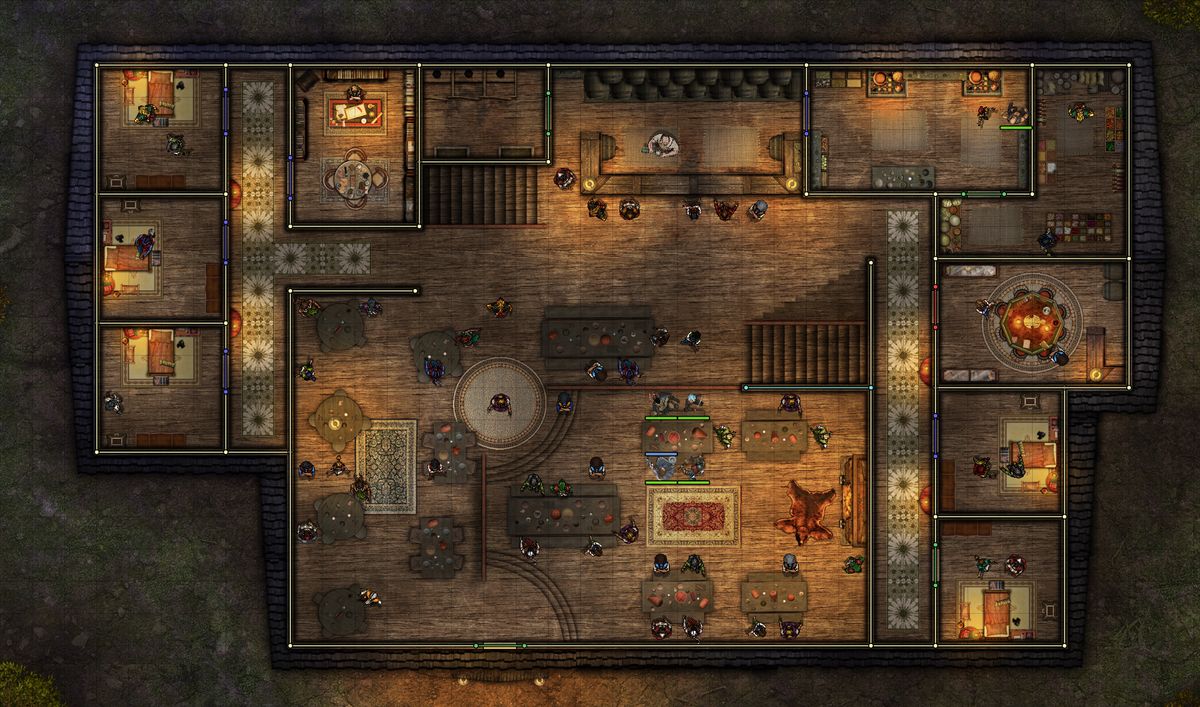Level Up Your Foundry VTT Game: Mastering Scene Transitions
Imagine this: your players are exploring a dark, foreboding forest. The tension is palpable. Suddenly, they stumble upon a hidden portal, shimmering with an otherworldly light. With a click, the scene seamlessly shifts to a vibrant, alien landscape, complete with swirling nebulae and strange flora. This is the power of scene transitions in Foundry Virtual Tabletop (Foundry VTT), a feature that can transform your online tabletop RPG sessions from static encounters to dynamic, cinematic experiences.
Foundry VTT has become a popular platform for playing tabletop role-playing games online, and scene transitions are a key part of its appeal. They allow Game Masters (GMs) to control the visual flow of their campaigns, enhancing immersion and storytelling. Instead of simply describing a change of location, GMs can visually transport their players, creating a more engaging and memorable experience.
Scene transitions weren't always a core component of Foundry VTT. Early versions relied on more rudimentary methods of scene switching. However, as the platform evolved, the demand for more sophisticated transitions grew. Community-created modules and eventually integrated features provided the answer, giving GMs more control over the pacing and atmosphere of their games. The importance of smooth, well-executed Foundry VTT scene changes lies in their ability to bridge the gap between imagination and digital representation. They turn a simple click into a narrative device, allowing the GM to build suspense, reveal information, and create truly memorable moments.
A Foundry VTT scene transition, simply put, is the method by which one scene shifts to another during gameplay. It's more than just switching maps; it's the visual effect that accompanies the change. This could be a simple fade to black, a more complex animation, or even a custom-designed transition using web technologies like CSS. The implementation of these transitions can vary, from using built-in Foundry VTT features to incorporating community modules that offer a wider range of options. However, one common issue can be performance, especially with complex animations or large scenes. Optimizing image sizes and using efficient transition methods can help mitigate these problems.
A simple example of a scene transition is the "fade to black" effect. Imagine your players are escaping a collapsing dungeon. As they flee, the GM triggers the transition, causing the screen to gradually darken to black. Then, the scene seamlessly changes to the exterior of the dungeon, showing the characters emerging from the rubble. This simple yet effective transition adds a cinematic touch to the escape sequence.
One benefit of using Foundry VTT scene transitions is enhanced immersion. By visually transporting players to new locations, you create a more engaging and believable world. Another advantage is improved pacing. Transitions can be used to control the flow of the narrative, building suspense or creating dramatic reveals. Finally, scene transitions contribute to a more professional and polished feel, enhancing the overall quality of your online RPG sessions.
Advantages and Disadvantages of Foundry VTT Scene Transitions
| Advantages | Disadvantages |
|---|---|
| Enhanced Immersion | Potential Performance Issues with Complex Transitions |
| Improved Pacing | Requires Some Technical Knowledge for Advanced Customization |
| Polished Presentation | Can Be Overused, Diminishing Impact |
Best practices for implementing scene transitions include: choosing transitions that fit the tone of the scene, using transitions sparingly to avoid overuse, testing transitions beforehand to ensure they work correctly, optimizing scene sizes for performance, and exploring community modules for additional transition options.
Real examples of scene transitions include: fading to black, using a wipe effect, implementing a portal animation, incorporating a custom CSS transition, and utilizing a dynamic lighting change to signify a scene shift.
Challenges related to scene transitions might involve performance issues, difficulty customizing transitions, or compatibility problems with certain modules. Solutions include optimizing assets, learning basic CSS, and seeking help from the Foundry VTT community.
FAQs: What are scene transitions? How do I create a scene transition? Can I use custom animations? What are the best modules for scene transitions? How can I improve the performance of my transitions? How do I troubleshoot scene transition issues? Where can I find more information about scene transitions? What are some common mistakes to avoid when using scene transitions?
Tips and tricks for scene transitions: experiment with different transition types, use transitions to highlight key moments, consider the psychological impact of different transitions, and don’t be afraid to get creative!
In conclusion, Foundry VTT scene transitions are a powerful tool for any Game Master looking to elevate their online tabletop RPG sessions. From simple fades to complex animations, the ability to dynamically change scenes enhances immersion, improves pacing, and adds a professional polish to your games. By understanding the benefits, best practices, and potential challenges of Foundry VTT scene transitions, you can unlock the full potential of this feature and create truly unforgettable gaming experiences for your players. Exploring the various community resources and experimenting with different techniques will allow you to master the art of the scene transition, bringing your virtual tabletop to life in ways you never thought possible. So, dive in, experiment, and discover the transformative power of scene transitions in Foundry VTT. Your players will thank you for it.
Unlocking linguistic puzzles mga halimbawa ng mga bugtong
Unveiling the mystery can you see hidden whatsapp statuses
Unlock your vehicles towing secrets decoding tow capacity by vin number












